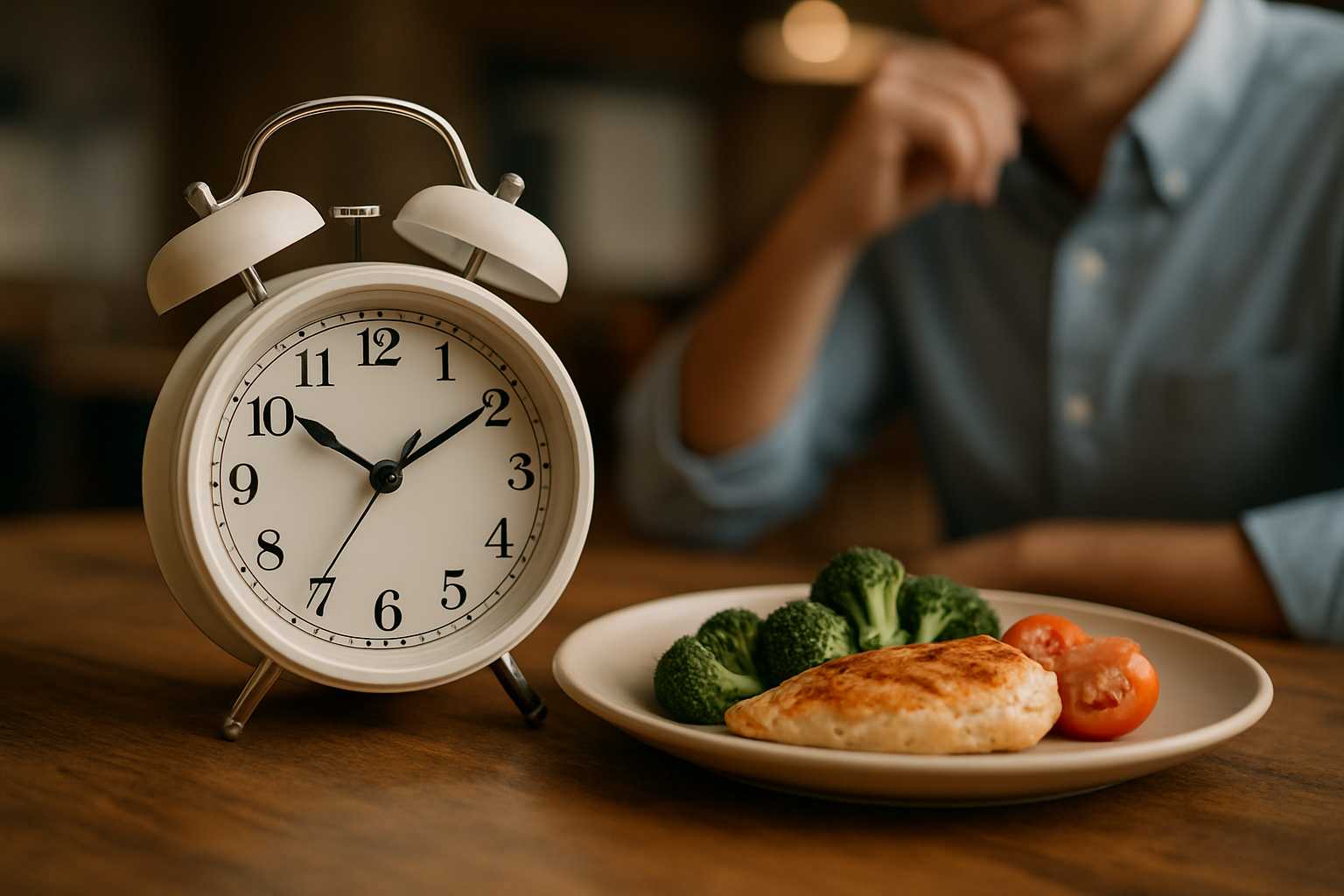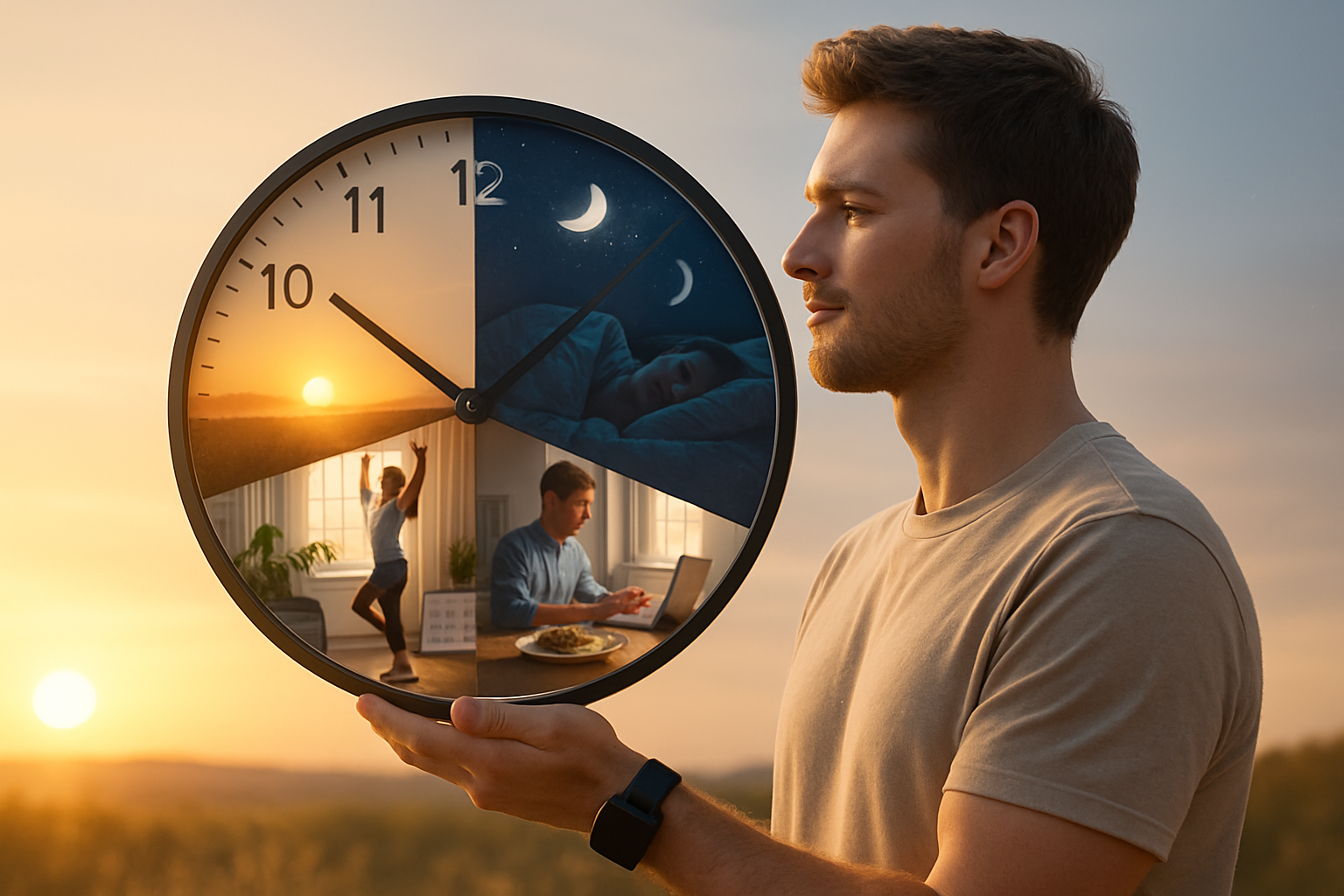Chronodiet: Syncing Meals with Your Body Clock for Optimal Health
Imagine a world where the timing of your meals is just as crucial as their content. What if your body's internal clock could guide you to better health, simply by adjusting when you eat? Welcome to the fascinating realm of chronodiet, where the ancient wisdom of meal timing meets cutting-edge nutritional science.

Research in chronobiology, the study of biological rhythms, has revealed that our bodies are primed for different functions at various times of the day. For instance, insulin sensitivity is highest in the morning, while fat oxidation peaks in the evening. These findings suggest that consuming certain nutrients at specific times could enhance their absorption and utilization.
The Historical Context of Timed Eating
While chronodiet may seem like a modern concept, the idea of timing meals for health benefits has ancient roots. Traditional Chinese Medicine and Ayurveda have long emphasized the importance of eating in harmony with natural cycles. In many cultures, dinner was traditionally the lightest meal of the day, aligning with the body’s reduced digestive capacity in the evening.
The Industrial Revolution and the advent of artificial lighting disrupted these natural eating patterns. As society became more nocturnal, late-night eating became commonplace, often conflicting with our body’s internal clock. Chronodiet seeks to realign our eating habits with our biological rhythms, drawing inspiration from both ancestral wisdom and contemporary research.
Key Principles of Chronodiet
Chronodiet is not about restrictive eating windows or calorie counting. Instead, it focuses on syncing meal timing with the body’s natural circadian rhythm. Here are some core principles:
-
Eat with the sun: The chronodiet approach suggests consuming most calories earlier in the day when metabolism is most active.
-
Respect the fast: Allowing for a 12-14 hour overnight fast can help reset the body’s internal clock and improve metabolic health.
-
Protein timing: Consuming protein-rich foods in the morning can boost alertness and stabilize blood sugar levels throughout the day.
-
Carb strategy: Complex carbohydrates are best consumed earlier in the day when insulin sensitivity is highest.
-
Evening light meals: Dinner should be the lightest meal, ideally consumed at least 3 hours before bedtime to allow for proper digestion.
Potential Health Benefits of Chronodiet
Emerging research suggests that aligning eating patterns with circadian rhythms may offer numerous health benefits:
-
Improved metabolic health: Studies have shown that eating in sync with circadian rhythms can enhance insulin sensitivity and glucose tolerance.
-
Better sleep quality: Avoiding late-night meals can promote more restful sleep by reducing digestive discomfort and nighttime acid reflux.
-
Weight management: Chronodiet may help with weight control by optimizing the body’s natural fat-burning processes.
-
Enhanced cognitive function: Properly timed meals can support brain health by providing energy when it’s most needed during the day.
-
Reduced inflammation: Some research indicates that circadian-aligned eating may help lower chronic inflammation, a root cause of many diseases.
Implementing Chronodiet in Daily Life
Adopting a chronodiet approach doesn’t require drastic lifestyle changes. Here are some practical tips to get started:
-
Establish a consistent eating schedule, aiming to consume meals at similar times each day.
-
Make breakfast your largest meal, focusing on protein-rich foods and complex carbohydrates.
-
Gradually shift your dinner earlier in the evening, aiming for at least 3 hours before bedtime.
-
Avoid late-night snacking to allow for a proper overnight fast.
-
Stay hydrated throughout the day, but reduce fluid intake close to bedtime to prevent sleep disruptions.
Chrono-Smart Eating Tips
-
Consume caffeine before 2 PM to avoid disrupting your sleep-wake cycle
-
Opt for a high-protein breakfast within an hour of waking to kickstart metabolism
-
Include fermented foods in your lunch to support gut health during peak digestive hours
-
Choose lighter, plant-based dinners to promote better sleep and nighttime recovery
-
Consider a small, protein-rich snack mid-afternoon to maintain energy levels
-
Align your exercise routine with meal timing for optimal performance and recovery
Embracing the Rhythm of Health
Chronodiet offers a fresh perspective on nutrition, emphasizing not just what we eat, but when we eat. By aligning our meals with our body’s natural rhythms, we can potentially unlock a new level of health and vitality. As research in this field continues to evolve, chronodiet stands as a promising approach to optimize our diet for better overall well-being. Remember, small adjustments in meal timing can lead to significant improvements in health, making chronodiet an accessible and practical wellness strategy for many.






